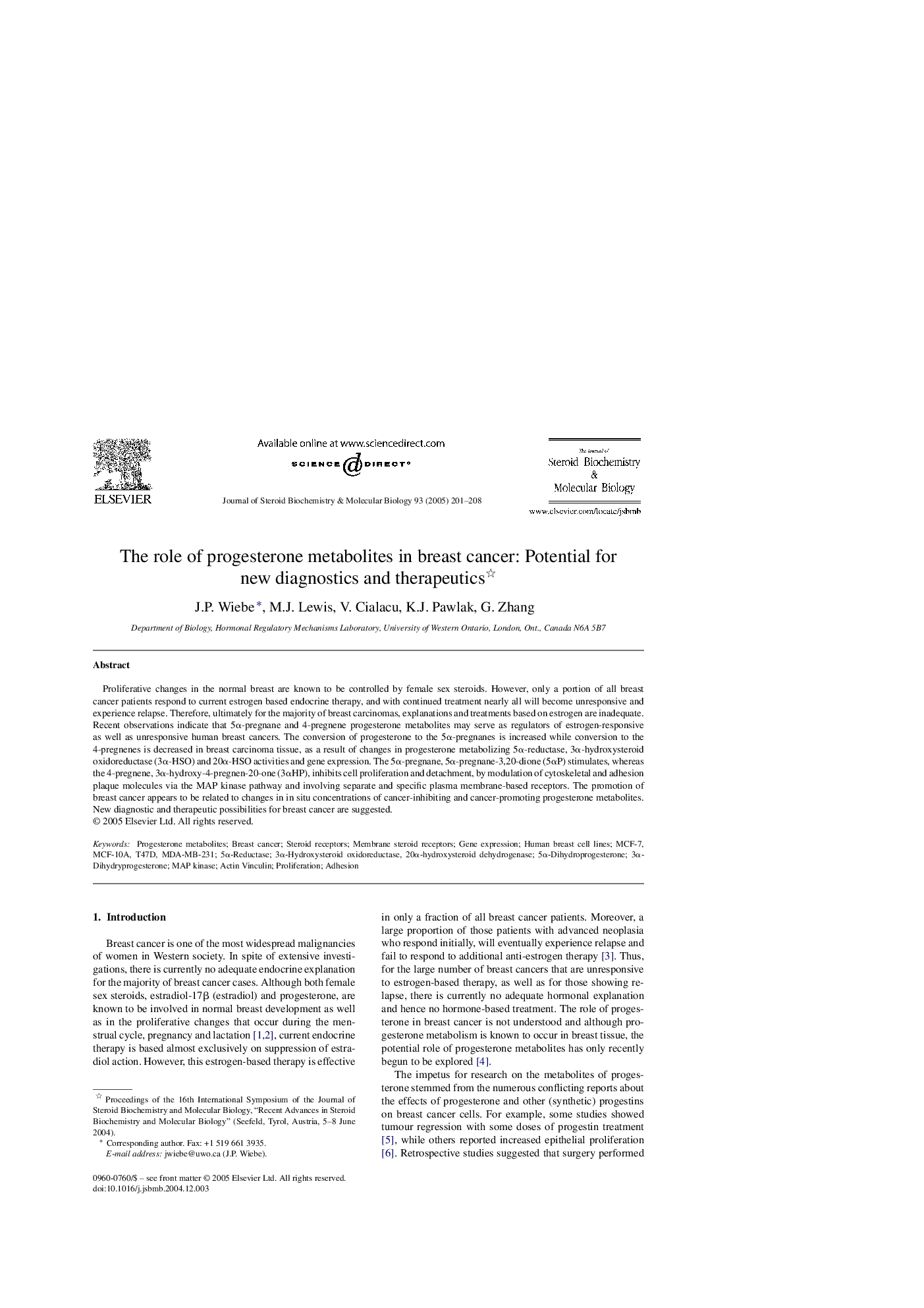| Article ID | Journal | Published Year | Pages | File Type |
|---|---|---|---|---|
| 9892220 | The Journal of Steroid Biochemistry and Molecular Biology | 2005 | 8 Pages |
Abstract
Proliferative changes in the normal breast are known to be controlled by female sex steroids. However, only a portion of all breast cancer patients respond to current estrogen based endocrine therapy, and with continued treatment nearly all will become unresponsive and experience relapse. Therefore, ultimately for the majority of breast carcinomas, explanations and treatments based on estrogen are inadequate. Recent observations indicate that 5α-pregnane and 4-pregnene progesterone metabolites may serve as regulators of estrogen-responsive as well as unresponsive human breast cancers. The conversion of progesterone to the 5α-pregnanes is increased while conversion to the 4-pregnenes is decreased in breast carcinoma tissue, as a result of changes in progesterone metabolizing 5α-reductase, 3α-hydroxysteroid oxidoreductase (3α-HSO) and 20α-HSO activities and gene expression. The 5α-pregnane, 5α-pregnane-3,20-dione (5αP) stimulates, whereas the 4-pregnene, 3α-hydroxy-4-pregnen-20-one (3αHP), inhibits cell proliferation and detachment, by modulation of cytoskeletal and adhesion plaque molecules via the MAP kinase pathway and involving separate and specific plasma membrane-based receptors. The promotion of breast cancer appears to be related to changes in in situ concentrations of cancer-inhibiting and cancer-promoting progesterone metabolites. New diagnostic and therapeutic possibilities for breast cancer are suggested.
Keywords
Related Topics
Life Sciences
Biochemistry, Genetics and Molecular Biology
Biochemistry
Authors
J.P. Wiebe, M.J. Lewis, V. Cialacu, K.J. Pawlak, G. Zhang,
